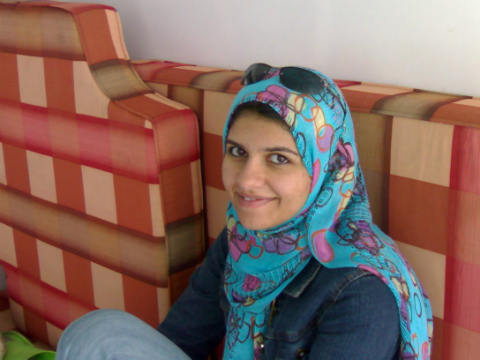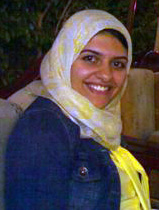An important notice: Ladies wearing headscarves and covering their bodies do shave and wax, cut their hair, wear highlights on their hair, go for pedicures and manicures, wear make-up and perfumes and … in short are chicks in their homes, believe it or not!
On days when we don’t focus on backbiting others and other covetous behaviors, we can learn something. Every day that we look to other cultures and connect with other people for the purpose of learning and elevating our souls, we discover something new about ourselves.
So I wear a headscarf, it is a piece of clothing that we, Muslims, put around our heads. And we have to be modest – meaning that we have to cover all parts of our bodies and not show skin to anyone. Call it a matter of obedience to Allah’s orders. Call it a matter of not arousing men’s attraction and sexuality levels. Call it a matter of not looking at females as sex objects in life. Call it whatever you like. Each woman wearing a hijab has a different story. And, I have a different story to tell.
At the age of 14, I decided I wanted to wear hijab. For no particular reason, I made the decision. I had not read the Qur’an verses that talk about hijab and I was not much of a religious girl to take the step. So why did I put a headscarf on my head? … And no, my hair was not a mess either.
I lived with my hijab 7 years without any problems and feeling very much neutral towards my hijab – I wasn’t particularly enjoying or hating it.
After my graduation, I started having second thoughts and doubts so as to why I was wearing this piece of cloth. I started looking at actresses on TV and found myself admiring hair style shows. Quite normal even for non-hijabi girls, isn’t it? But for me, a dent was being created in my convictions. Pardon me, I’d had no particularly strong convictions about hijab before anyway. So it was somewhat normal to feel like a leaf in the wind. Yet, I decided I wasn’t going to take it off yet.
Years later, when I moved from Egypt to Bahrain, I began to interact with other friends, in a community consisting mainly of Westerners from Canada, America, Russia and UK … etc. Bahrain is indeed the most amazing community I have been a part of. And it all started again … this wrestling with the hajib.
My friends here are not Hijabis of course. They wear whatever they like. They are so simple and modest in showing their bodies though. My respect, admiration and convictions about my hijab started to quiver again. “I can still be modest with my hair out,” I began to think, “I can still be prudent while showing off my hair”. I could style my hair. I could glide my sunglasses on top of my hair at the beach, or I could tie my hair into a pony tail. The sleeves of my clothes could be shorter, the collar shorter. How about the pretty bangles made of gem stones on my wrists, I could show them off! My respect for my body would be eternal even if I showed my hair because I hate it when others violate the sacredness of me by looking oddly at my body.
I had to ask more friends about their choice of Hijab. And I made sure to speak to those with a western background because their wearing of the Hijab is a choice, not based upon societal demands.
HebatAllah Azmy wrote on her blog about her experience with Hijab in a four parts article, I gladly quote her words: “The most important thing that Hijab did for me was empower me and show me my own strength! Contrary to popular Western belief, Hijab does not oppress women, not one bit … What is oppressive about being in control of what others do or do not see with regards to your own body? What is oppressive about demanding and ensuring that others treat you with respect even if it is by the slightest of actions, like a look?”
Another beautiful girl called Sarah, who dones niqab (full face covering), said she decided to start wearing it at a young age upon hearing the verse: “Verily, Allah has purchased of the believers their lives and their properties; for the price that theirs shall be the Paradise.” (Surah At Tauba:111). She is therefore sacrificing showing people her face seeking out paradise.
So my search for answers to calm my wavering thoughts continued.
I recently attended a workshop with Fred Donaldson to learn about ‘original play’, how to interact with your kids physically, teaching them ways to play peacefully and gently. Mr Donaldson was such a big man, yet so gentle with blue eyes and so decent when touching children to play with them. We had to imitate to learn. We had to roll on the ground, carry our kids on our backs and tummies, raise them up and put them down and swing them from side to side.
Then came time for questions and answers, of which we had many: ‘What can I do when I don’t have free time?’ ‘How much time should I spend when doing this game?’ ‘How do I do this?’ He patiently responded to all questions and I had my own questions too … the most notable of which was, ‘How do I respond gently when one of my boys pulls my hair?’ In his blue eyes, I noticed a bit of hesitation. He looked unto my friend who was sitting beside me and said to her, “Pull my hair please.”
She placed her hand on his hair and he carefully covered her hand with his and slid it down. It was such a smooth move to teach your children; the lesson was that this should be done in a non-aggressive way from which I have learnt much.
I have learnt that he didn’t ask me to touch him because of my hijab/headscarf. I learnt that he looked at my body as sacred just because I was covering my hair. Fred Donaldson taught me more than the original play theory, he taught me that my hijab gained me respect from the mere look of my appearance, the thing I won’t let go no matter what.
Your thoughts?
Imane Fawzy Nofal is a translator, News Reporter, Copywriter, Editor, Proofreader (Arabic and English) and mother of twin boys. She is an Egyptian living in Bahrain and blogs at Express It 2 Live It. Imane regularly shares her thoughts on human interactions and real life experiences through her DUNIA Magazine column Express it by Imane. Imane’s first language is Arabic. Twitter: @Imane2express



Very interesting. Many thanks 🙂
Thank you for reading : )